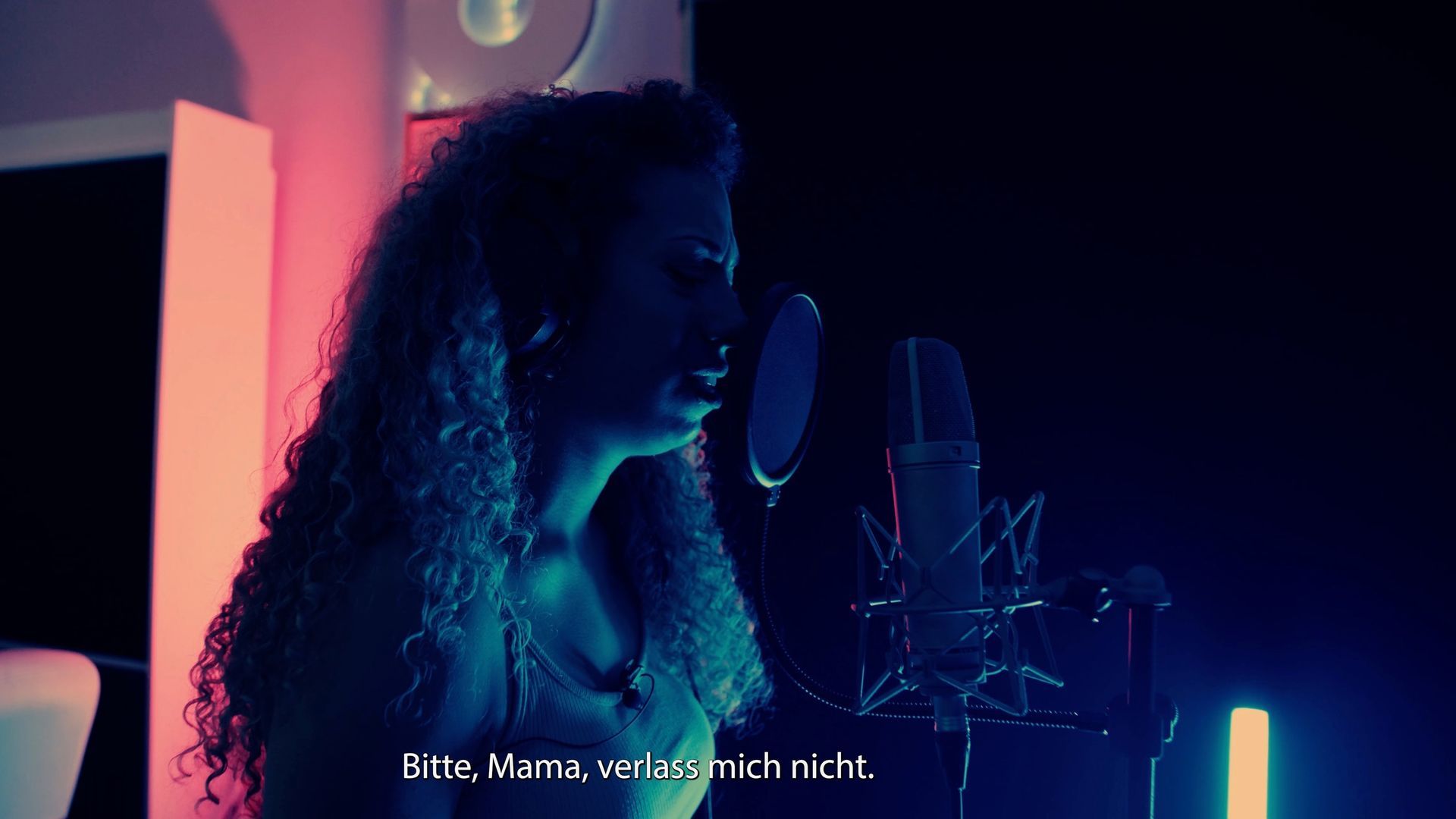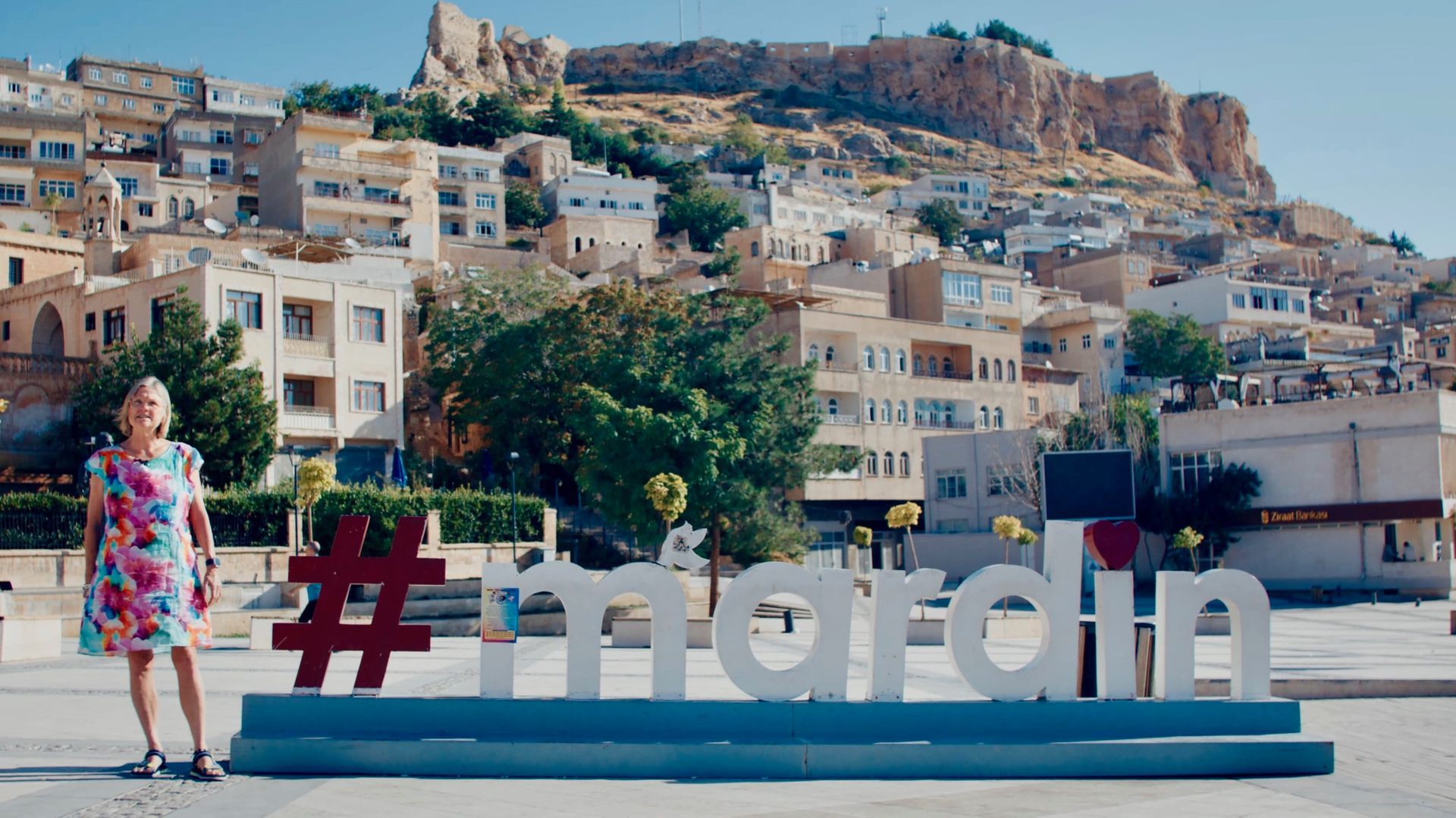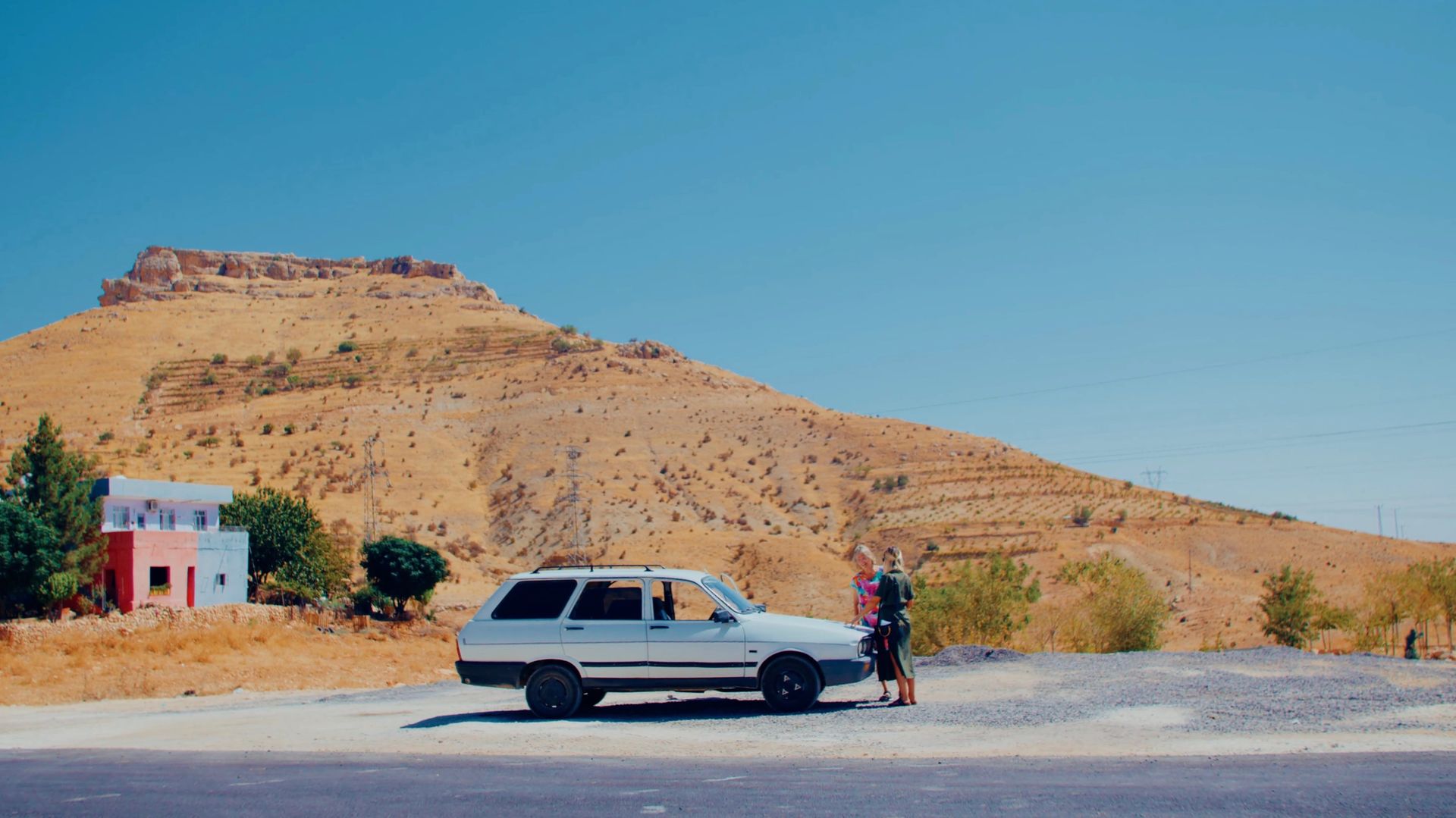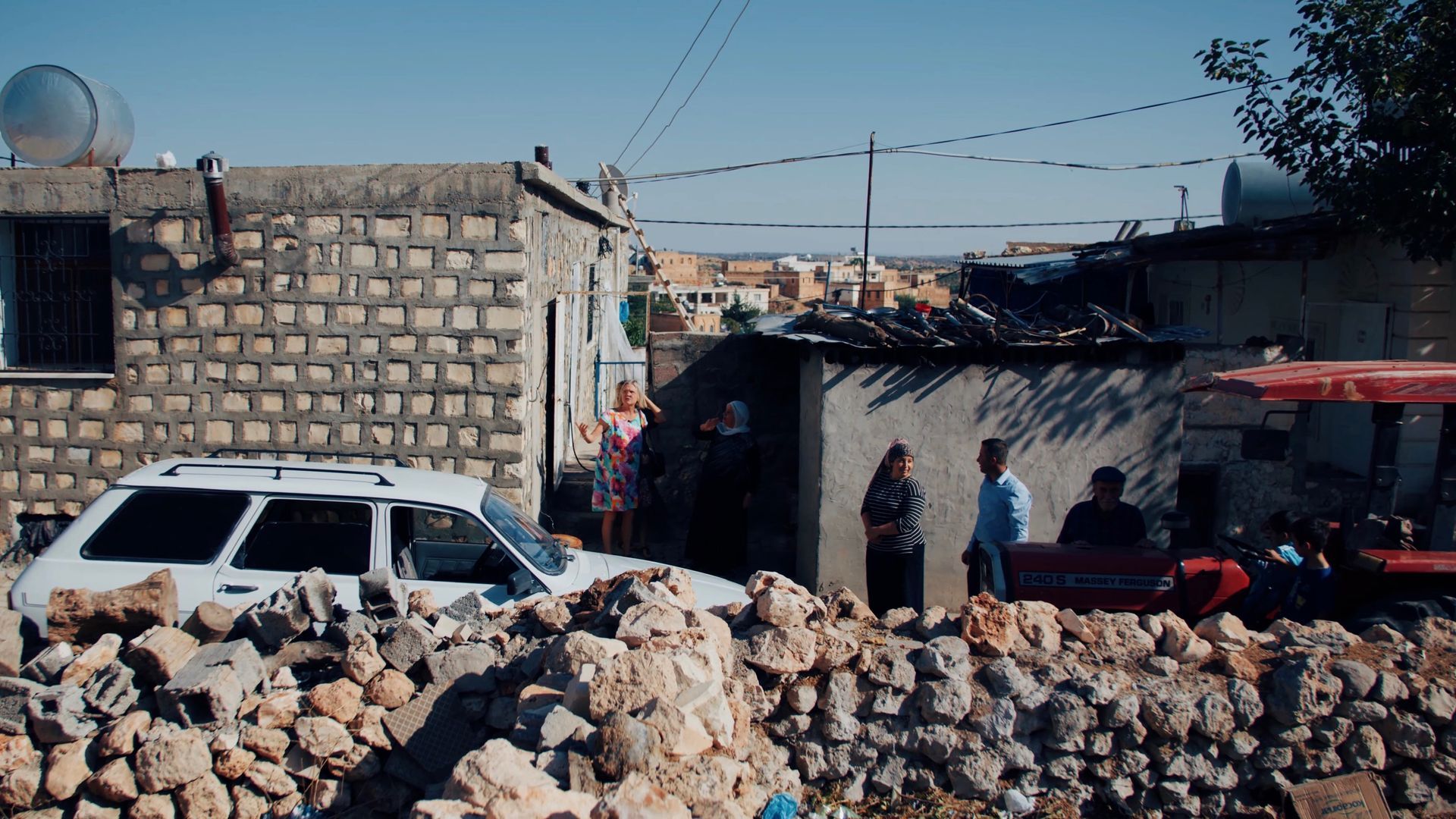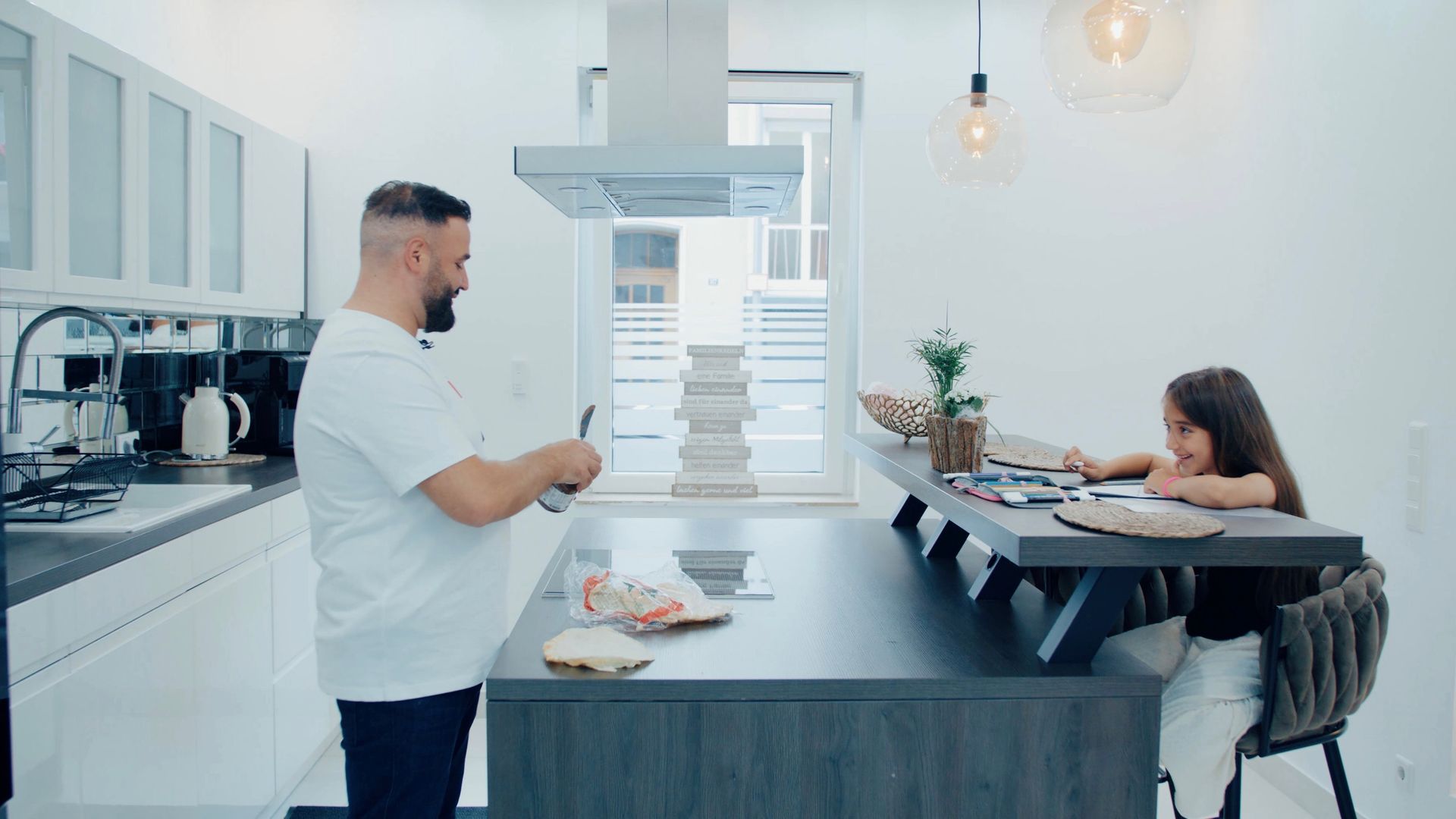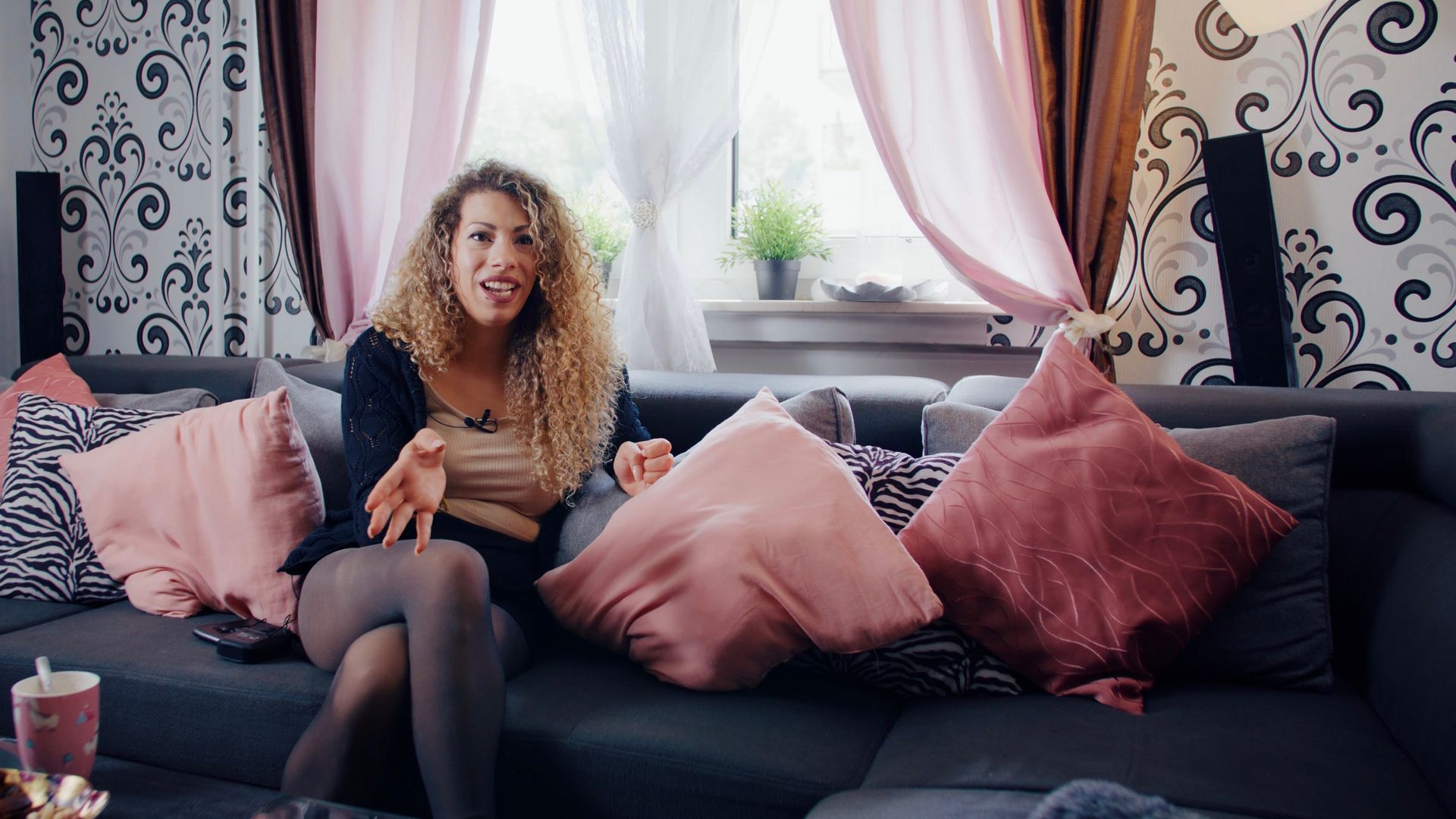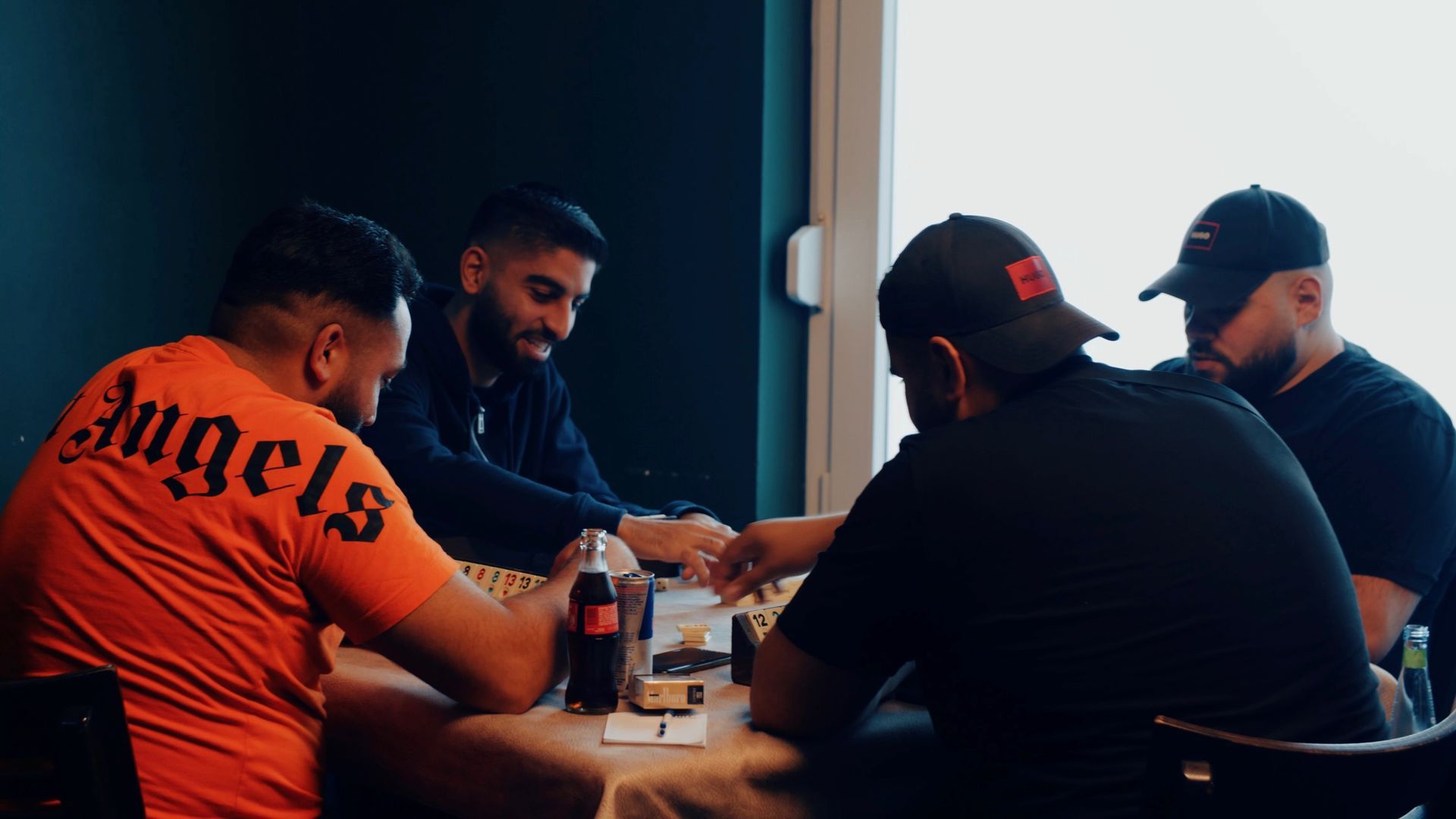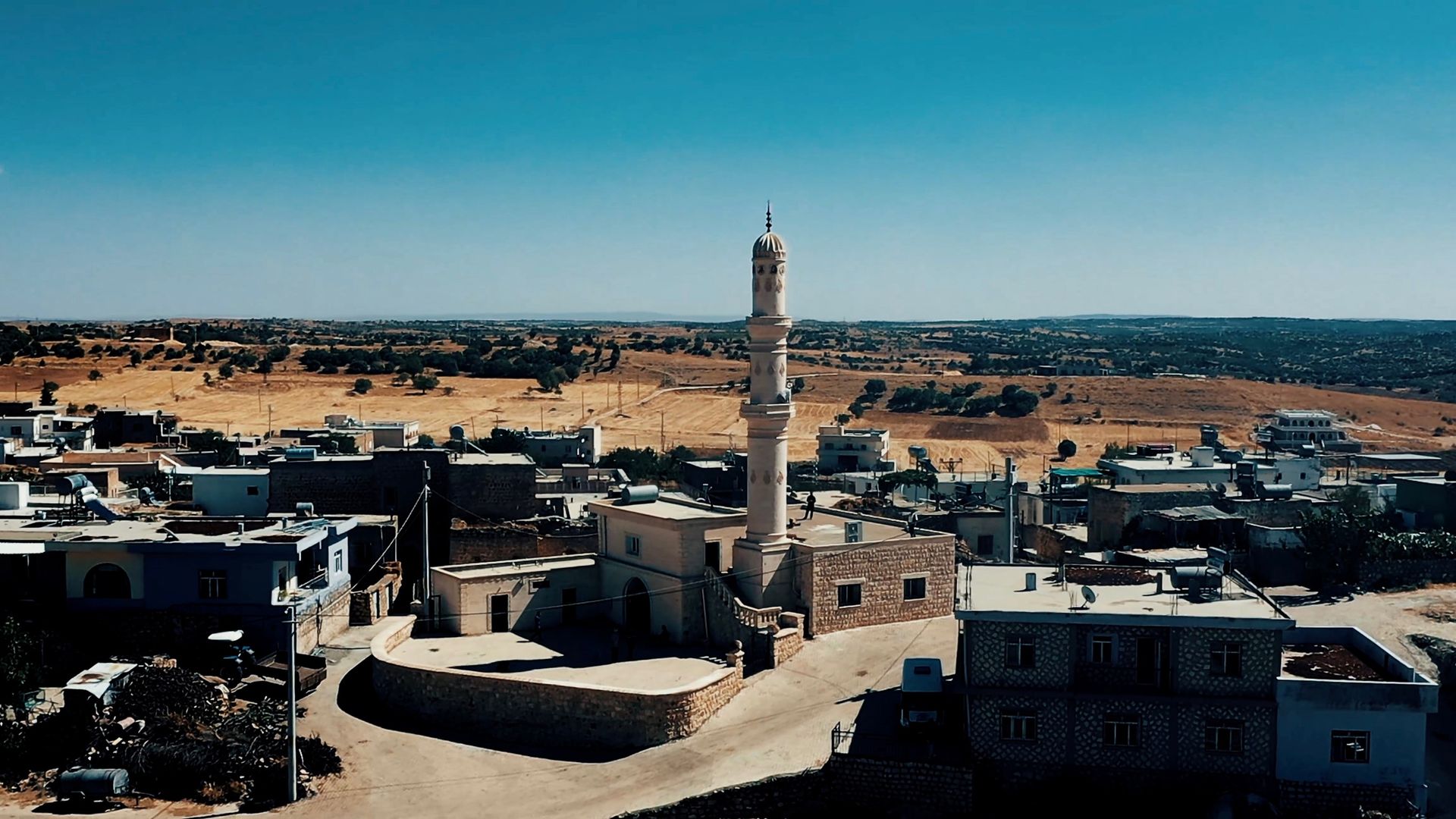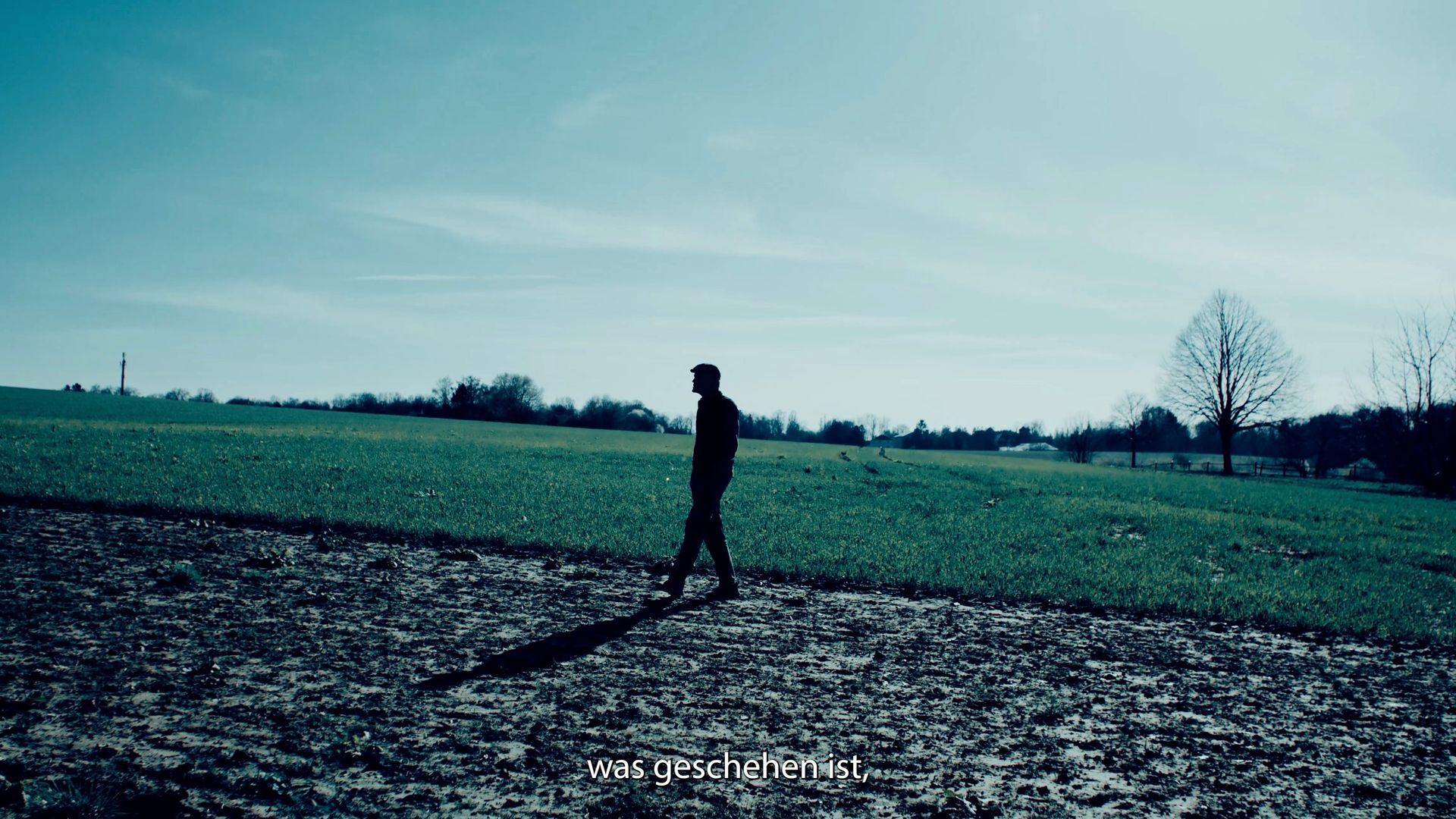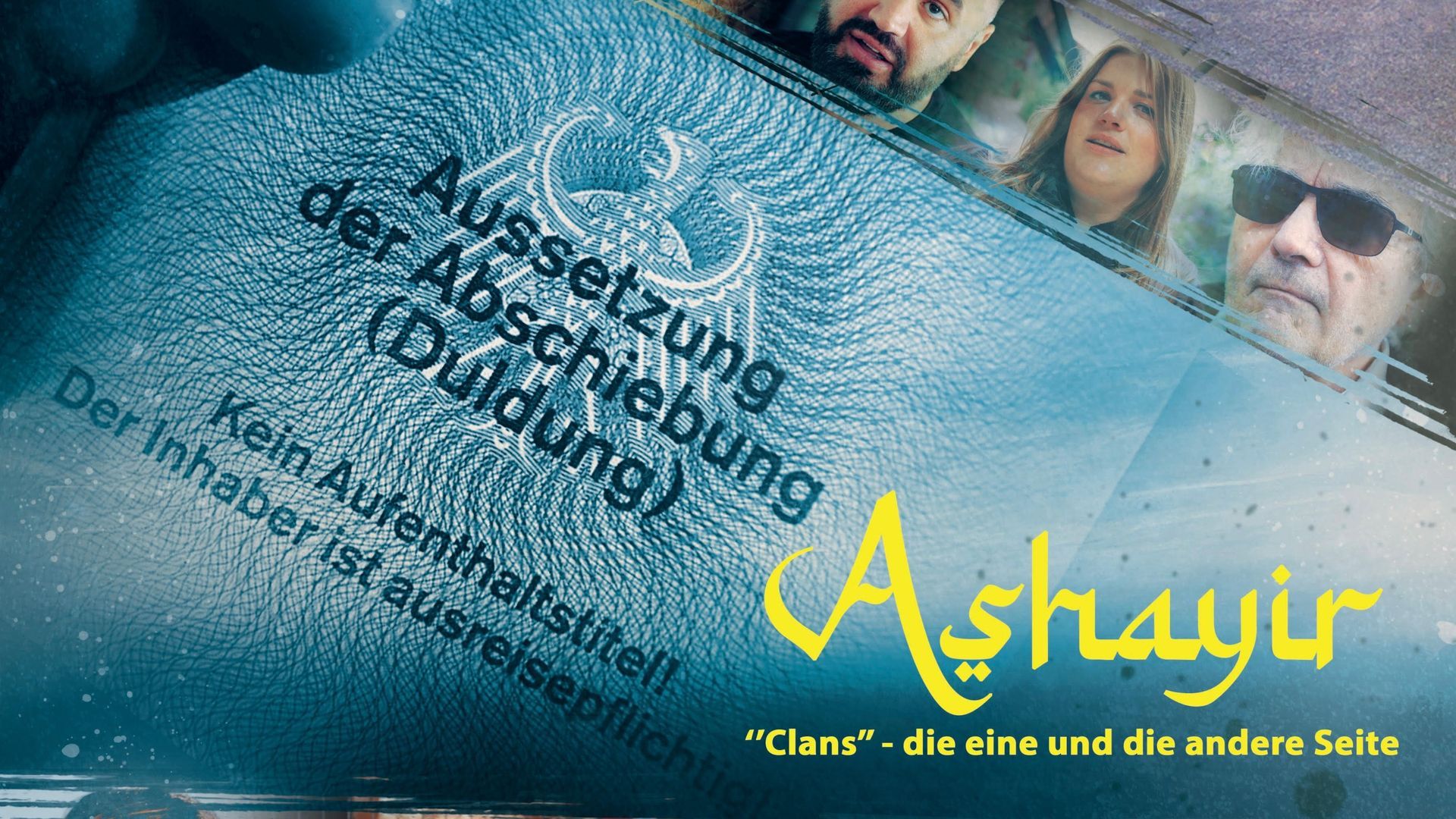Press information:
Ashayir - "Clans" one side and the other
Premiere - Lichtburg Essen Sunday, 05.05.2024 at 11:00 a.m.
Full film in advance (for press only):
Summary
The documentary: Ashayir - "Clans", one side and the other" delves deep into the history and experiences of Lebanese immigrants. These people initially fled from the Turkish city of Mardin to escape political persecution and poverty, but later found no lasting safety in Lebanon due to the civil war there. The film sheds light on their life stories, dreams and the various and very different challenges they face, ranging from the difficult situation of being tolerated to the prejudice and stigmatization they face in Germany. But the film also shows success stories, as some immigrants were granted a residence permit and took the opportunity to gain a foothold in Essen.
A central character in the film is Diana Siala, whose great-grandparents had similar experiences to many other Lebanese immigrants. Her journey to find her family's roots in Mardin not only reveals her personal story, but also the broader experience of the Lebanese diaspora. Many people with Lebanese family history have never been to the areas from which their ancestors originally came.
Monika Rintelen already knows this from her late husband, Arno Pilger. He looked after people from this community around 30 years ago and left a legacy that continues to have an impact even after his death. The friendships that were formed back then still have an impact today and prompted Monika Rintelen to research the roots of the story.
The film is not just a sober documentary, but a moving portrait that sensitively conveys the hopes, dreams and struggles of this community. It shows that the topic of "clans" contains a variety of perspectives and stories that are often misunderstood or viewed one-sidedly. With their personal access and sensitive approach, directors Hamid Merhi and Monika Rintelen show that there are no easy solutions to complex social problems such as these, but that empathy and understanding are the key to overcoming them. By emphasizing the power of kindness as a solution, they encourage reflection and discussion about the multifaceted and complex nature of the issue.
Direction
Hamid Merhi
Hamid Merhi was born on January 27, 19** in Essen and brings a unique cultural perspective to the German film industry through his Lebanese family history. He completed his training between 2008 and 2015 at two renowned film universities in Cologne and Baden-Württemberg. After completing his studies, he moved abroad, where he lived in China, Egypt, Lebanon and Dubai from 2016 to 2019. There he gained extensive experience in the production of television commercials, music videos and feature films. These international experiences shaped not only his technical skills but also his artistic expression.
After his return to Germany, he founded the production company MerhiCinema , which specializes in project and advertising films. One of his biggest goals is to produce a feature film in Essen. Merhi has also established himself as a cultural mediator between Arab and German culture, especially through his involvement in projects that promote cultural exchange and mutual understanding. He is particularly committed to supporting young people and newcomers to acting by offering them opportunities that were denied to him in his youth.
His family background in the film business and his early experiences “playing” with cameras as a child deeply shaped his passion for filmmaking and had a decisive influence on his career.
Monika Rintelen
Monika Rintelen, 71 years old, and her now deceased husband Arno Pilger maintained intensive contacts with members of the Lebanese community 30 years ago. As a social worker, Arno Pilger was specifically responsible for the needs of this community. His mission was to bring Essen and Lebanese society closer together in order to promote peaceful coexistence. Today, Monika Rintelen herself lives in the middle of the "clans'" territory. The question of what "tolerated status" actually means in Germany and why people who have lived here for over 40 years are still faced with difficulties never left her alone. And when she came up with the idea of films that help to make our society and our lives more beautiful, the topic of "fellow citizens of Lebanese origin" was of course a must.
producer
Reinhard Wiesemann
Reinhard Wiesemann, 64 years old, lives with Monika Rintelen in the multi-generational house "GeKu" in the northern city center of Essen, which was branded as "clan territory". He has the Unperfect House, the VielRespektStiftung and other projects. Like Monika Rintelen, he is friends with many people from different cultures - including "clan members" - and does not want to accept that these people are held collectively responsible. Also influenced by the experience of this film, the idea of creating a new foundation was born, which StrongGoodnessFoundation whose task is to make it clearer to state authorities that kindness is a stronger and more long-lasting force than "1000 pinpricks" and "tough crackdowns".





